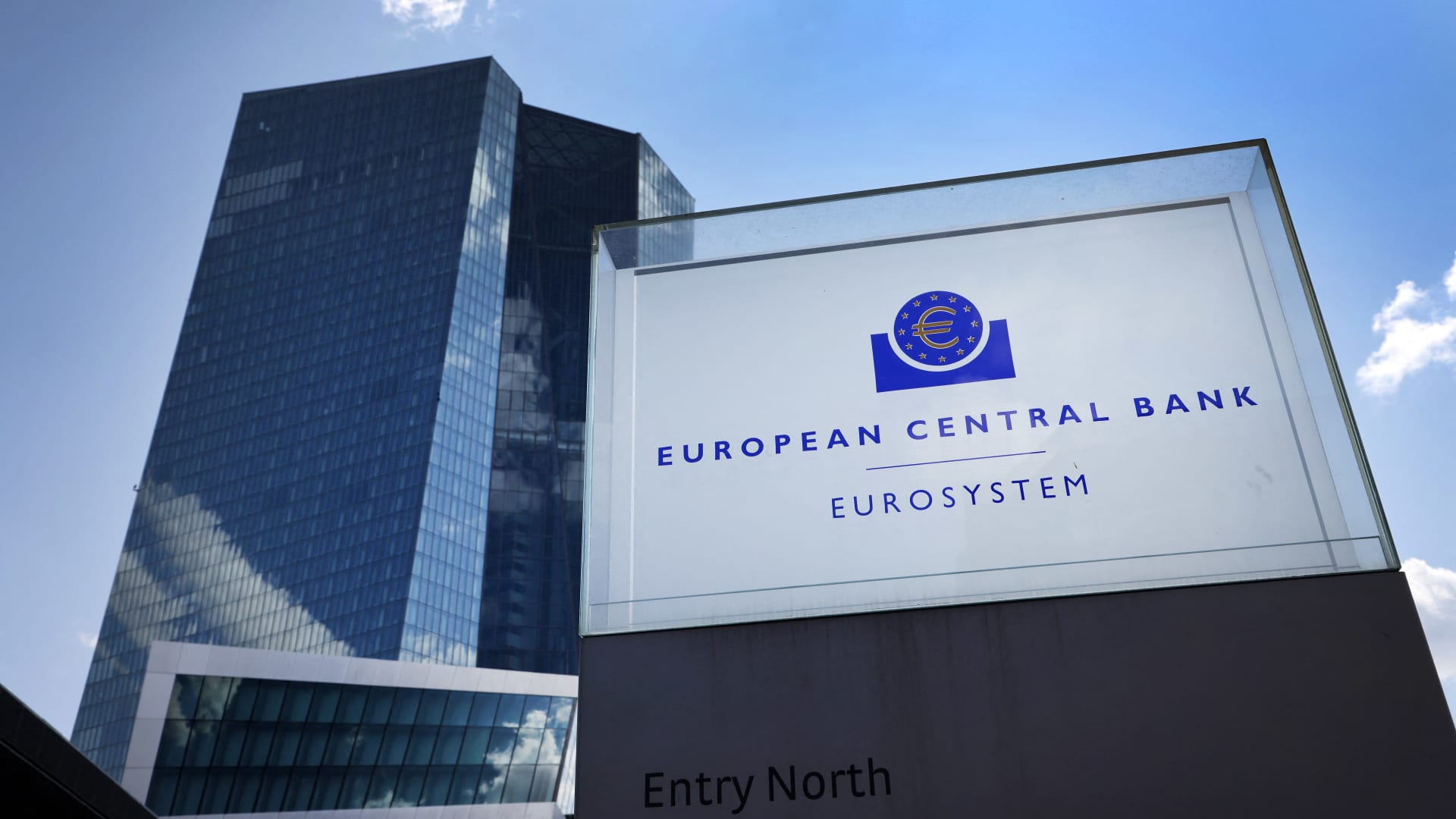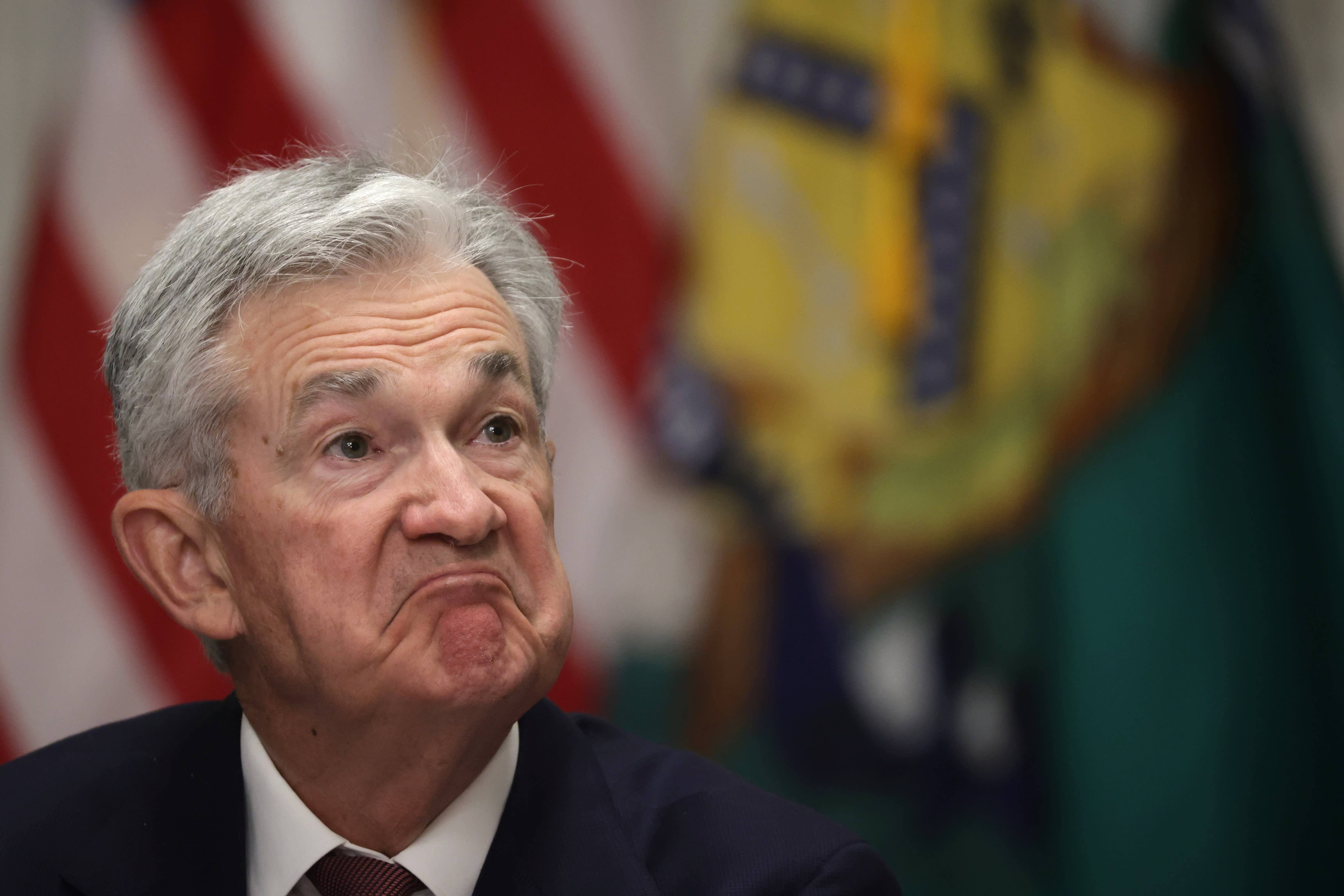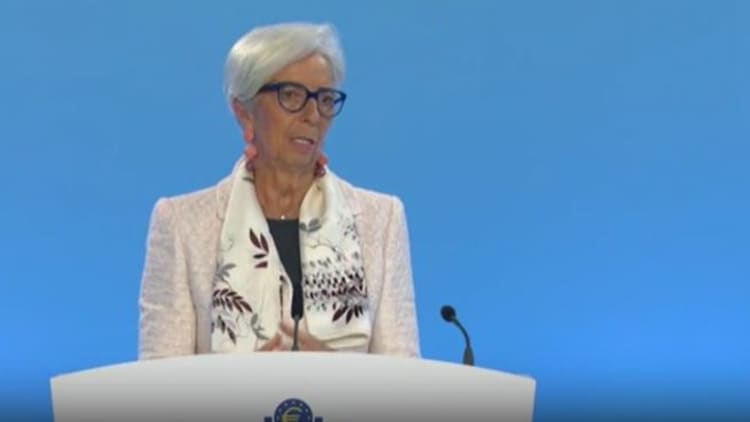European Central Bank raises rates by a quarter percentage point, says inflation set to remain ‘too high for too long’


The European Central Bank announced a new rate decision Thursday.
Daniel Roland | AFP | Getty Images
The


The European Central Bank announced a new rate decision Thursday.
Daniel Roland | AFP | Getty Images
The
“Inflation continues to decline but is still expected to remain too high for too long,” the ECB said Thursday in a statement.
A headline inflation reading showed the rate coming down to 5.5% in June from 6.1% in May — still far above the ECB’s target of 2%. Fresh inflation data out of the euro zone is due out next week.
While market players had expected the 25 basis point hike, a lot of anticipation remains about the ECB’s post-summer approach. Inflation has eased, but questions linger about whether monetary policy is pushing the region into an economic recession.
The central bank did not share any forward guidance about upcoming moves.
“The Governing Council will continue to follow a data-dependent approach to determining the appropriate level and duration of restriction,” it said.
Speaking at a press conference, European Central Bank President Christine Lagarde said, “Our assessment of data will tell us whether and how much ground we have to cover.”
She added that her team is “open-minded” about upcoming decisions. The central bank might hike or hold rates steady in September, but whatever it does it will not be definitive, she said.

Lagarde went further when pressed by the press, saying, “We are not going to cut.”
Carsten Brzeski, global head of macro at ING Germany, said: “What is more interesting, the accompanying policy statement kept the door for further rate hikes wide open and did not strike a more cautious note.”
Neil Birrell, Chief Investment Officer at Premier Miton Investors, said in a statement, “If rates are yet not at the peak, we are not far away, and the conversation may soon move to how long they will stay at the peak.”
An ECB survey showed that corporate loans in the euro zone dropped to their lowest level ever between the middle of June and early July.
Euro zone business activity data released earlier this week pointed to declines in the region’s biggest economies, Germany and France. The figures increased the chances of a recession in the euro area this year, according to analysts at ING Germany.
The International Monetary Fund said this week that the euro zone is likely to grow by 0.9% this year, but that factors in a recession in Germany, where the GDP is expected to contract by 0.3%.
The ECB also announced on Thursday that it will set the remuneration of minimum reserves to 0% — which means that banks will not earn any interest from the central bank on their reserves.
The euro traded lower against the U.S. dollar off the back of the announcement, dropping by 0.3% to $1.105. The Stoxx 600 jumped 1.2%, while government bond yields dropped.
The reactions highlight that market players are probably expecting further rate increases in the euro zone.